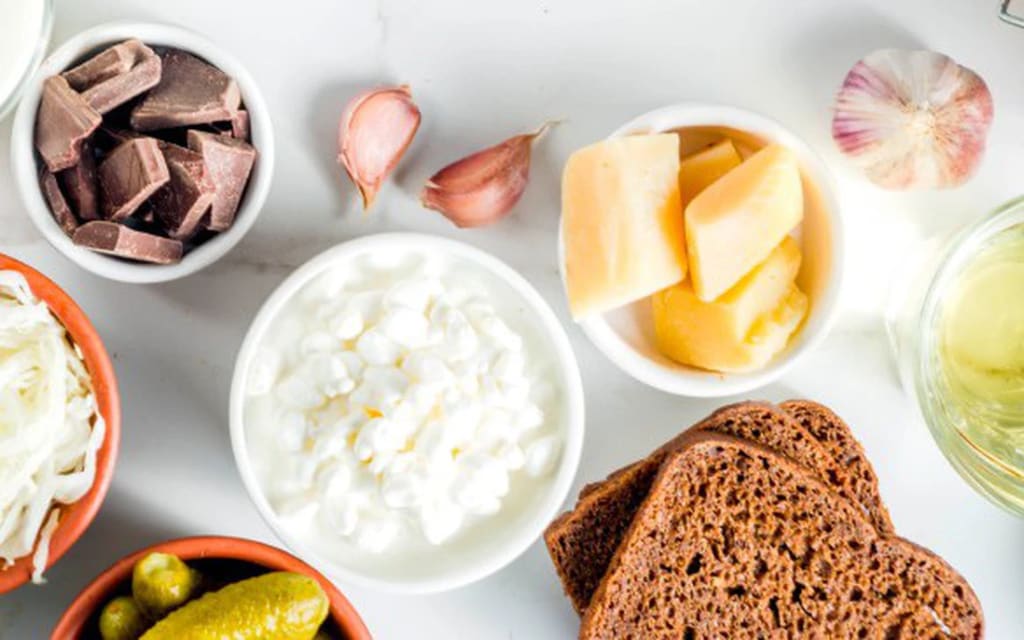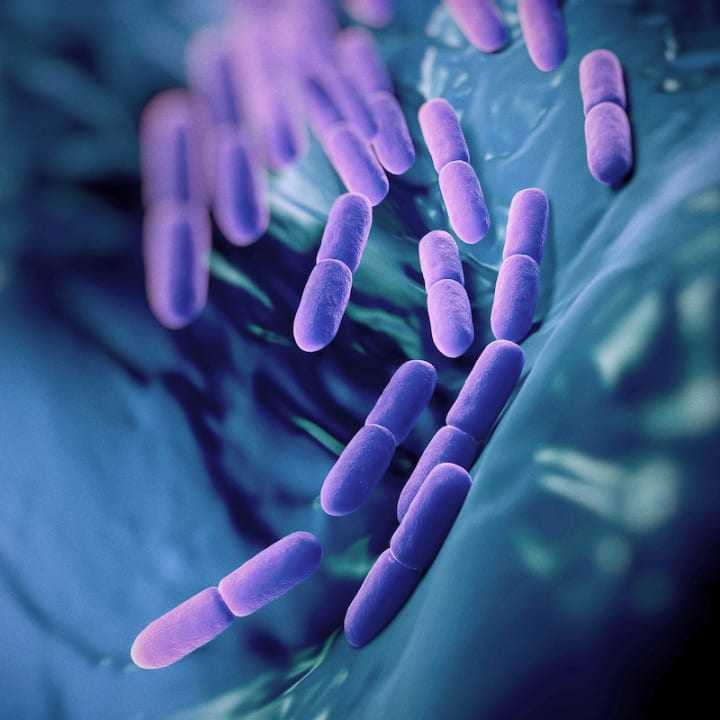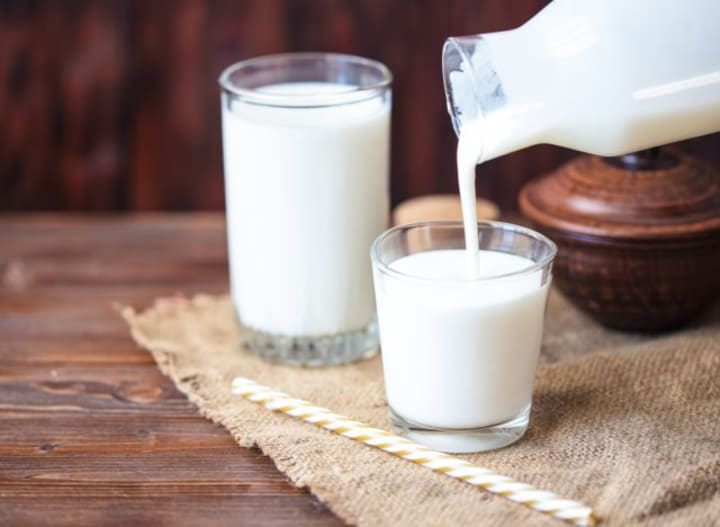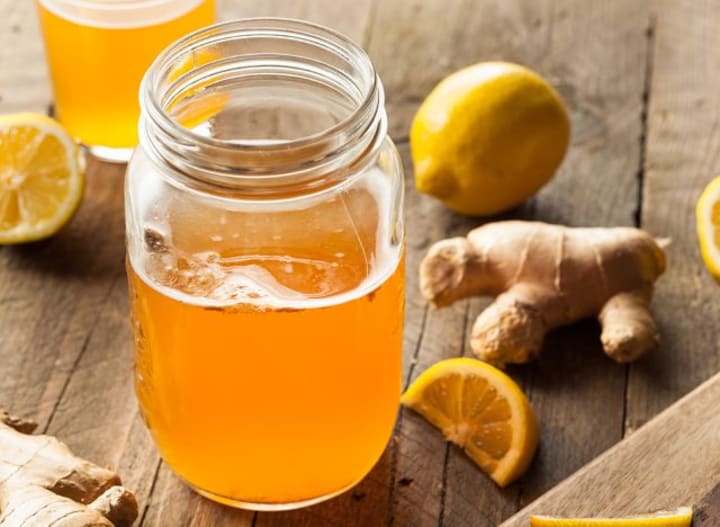5 types of Probiotic foods that are good for intestinal health
A healthy gut is a prerequisite for the immune system to be able to protect against external factors that cause disease.

The gut microbiome is made up of trillions of bacteria, fungi, parasites, and other microorganisms that play important roles in the body's functions. This microbiome can influence bodily functions such as digestion, metabolism, and immune regulation.
If an imbalance in the gut microbiome occurs, probiotics can help put beneficial bacteria back into your body.
1. What are probiotics?
Probiotics are defined as live bacteria that, when introduced into the body in sufficient quantities, produce beneficial effects on health. Probiotics preparations (commonly known as digestive enzymes) are not drugs, but are classified as nutritional supplements.
In other words, probiotics are living microorganisms that are beneficial to health, especially for the digestive system. Probiotics help balance the bacteria in the gut and can help improve digestion, strengthen the immune system and reduce inflammation.
According to Health, some studies have shown that probiotics can act like antioxidants, help reduce inflammation in the body, and may increase the bacterial diversity of the gut microbiome.

Most probiotic- rich foods are fermented, as live microorganisms are added during the fermentation process. However, it is important to note that not all fermented foods contain probiotics. If the food is heated after fermentation (such as sourdough bread, tempeh , or miso), the beneficial microorganisms are cooked away. Yogurt, on the other hand, contains live microorganisms that are added during the fermentation process.
Probiotic bacteria strains
There are many strains of probiotic organisms found in foods and supplements. These include:
- Lactobacilli (such as Lactobacillus acidophilus and Lactobacillus GG)
- Bifidobacteria (such as Bifidobacteria bifidus)
- Yeast (such as Saccharomyces boulardii).
Different strains of organisms have different effects. Before you start taking a probiotic-rich supplement , talk to your doctor to make sure you're getting the right foods that are most likely to help your current health condition if you're taking a prescription medication. medicine.
Probiotics vs. Prebiotics
Probiotics are different from prebiotics. Prebiotics are found in carbs that humans cannot digest (mainly fiber). The beneficial bacteria in the gut feed on this fiber . Foods rich in prebiotics include oatmeal, bananas, berries, asparagus, and beans.
But in short, supplementing an appropriate amount of probiotics and prebiotics will ensure a balance of beneficial bacteria in the intestinal microflora, thereby benefiting intestinal health and overall health.
Probiotic side effects
According to Health, current research shows that probiotics, especially the most common Lactobacillus and Bifidobacteria species, are considered relatively safe for most people to consume.
Minor gastrointestinal symptoms such as bloating are common side effects when consuming foods rich in probiotics. To reduce this side effect, when you first start supplementing probiotics, add them slowly so your body learns to adapt and consume them.
In addition, probiotic infections or poisoning are rare if the user consumes the right probiotic strain and is appropriate for their health condition. Premature infants, people with serious illnesses or immunodeficiencies are also known to be more susceptible to side effects when consuming foods rich in probiotics than healthy people.
That's why scientists once again emphasize that you should consult your doctor when you have a health condition such as a chronic disease that is being treated with a prescription before adding any new foods. into your daily diet to avoid adverse side effects.
2. Foods rich in probiotics are good for intestinal health
Here are some foods rich in probiotics that are good for gut health that you can add to your daily diet, according to Health:
2.1. Kefir milk mushrooms
Kefir is a fermented milk beverage that is rich in probiotics. Kefir is made by mixing cow or goat milk with fermented kefir grains , which is a culture of yeast and lactic acid bacteria . The fermentation process creates a mixture of bacteria and yeast that act as probiotics.

Kefir has a distinctive aroma. It is also a rich source of protein and calcium . In particular, kefir grains contain about 30 different strains of bacteria and yeast, making this food a "huge" source of probiotics that is much better for intestinal health than yogurt.
Because of the way it's prepared, it's usually quite low in lactose, so most people with lactose intolerance can tolerate kefir.
2.2. Kimchi
Kimchi is made by fermenting vegetables such as Chinese cabbage, radish, cucumber, chives, carrots, and onions. The fermentation process uses Lactobacillus bacteria to break down sugars into lactic acid , which gives kimchi its characteristic sour taste.
When taken as a supplement, this bacteria may provide a number of health benefits. Studies have found that fermented kimchi helps reduce levels of harmful bacteria in the gut and promotes healthy blood sugar, blood pressure, and cholesterol levels.
Not only is kimchi a good source of probiotics, it's also rich in fiber—another important nutrient for gut health. Fiber also helps keep cholesterol levels and blood sugar stable.
The Lactobacillus bacteria in kimchi may help boost the immune system. Probiotics and other active compounds in kimchi also help suppress inflammation thanks to their powerful anti-inflammatory properties.
2.3. Kombucha
Kombucha is a fermented tea. The main ingredients for making kombucha include tea, sugar and scoby . During the fermentation process, scoby breaks down the carbohydrate structure in sugar and releases probiotic bacteria, making this drink high in acids including acetic , gluconic and lactic acids .
These compounds have been shown to be good for gastrointestinal health, helping to nourish and strengthen beneficial bacteria as well as maintain the balance of bacteria in the digestive tract.

Pregnant women and people with compromised immune systems should talk to their doctors before consuming kombucha.
2.4. Sauerkraut (Salted Cabbage)
Sauerkraut is fermented with lactic acid bacteria , which act as probiotics. One study found that sauerkraut retains most of its beneficial bacteria throughout the fermentation process and into the finished product, making it a great probiotic- rich food.
According to Healthline, an old study shows that a serving of pickled cabbage can contain up to 28 separate strains of bacteria as well as a variety of enzymes that help break down nutrients into smaller, more easily digestible molecules.
In addition, pickled cabbage is also rich in fiber, vitamin C, vitamin K, the antioxidants luetin, zeaxanthin and iron, all of which along with probiotics contribute to helping promote healthy digestion and overall health.
2.5. Yogurt
Yogurt is a popular and easily consumed probiotic- rich food source for people of all ages. Similar to kefir , yogurt is a fermented food, mainly lactic acid bacteria and bifidobacteria .
Health benefits of eating yogurt include: Improved bone, heart and digestive health; reduced risk of diabetes; reduced risk of breast and colon cancer; weight management.
In addition, yogurt can be a suitable food for people with lactose intolerance because bacteria turn some lactose into lactic acid - this is also the reason why yogurt tastes sour.
But it should be noted that not all yogurt contains live probiotics. The process of fermenting yogurt sometimes kills live bacteria, so be sure to read the nutrition facts on the box before using to get the most benefits.
In addition to foods rich in probiotics that are good for intestinal health, to have a healthier digestive system, you also need to maintain a healthy lifestyle including regular exercise, avoiding staying up late, avoiding fried foods with lots of oil, avoiding smoking,... and having a health check-up when having unusual digestive symptoms.
About the Creator
HK Decor
Telling stories my heart needs to tell <3 life is a journey, not a competition
If you like what you read, feel free to leave a tip,I would love some feedback
https://sites.google.com/view/hk-decor/trang-ch%E1%BB%A7
Enjoyed the story? Support the Creator.
Subscribe for free to receive all their stories in your feed. You could also pledge your support or give them a one-off tip, letting them know you appreciate their work.






Comments
There are no comments for this story
Be the first to respond and start the conversation.